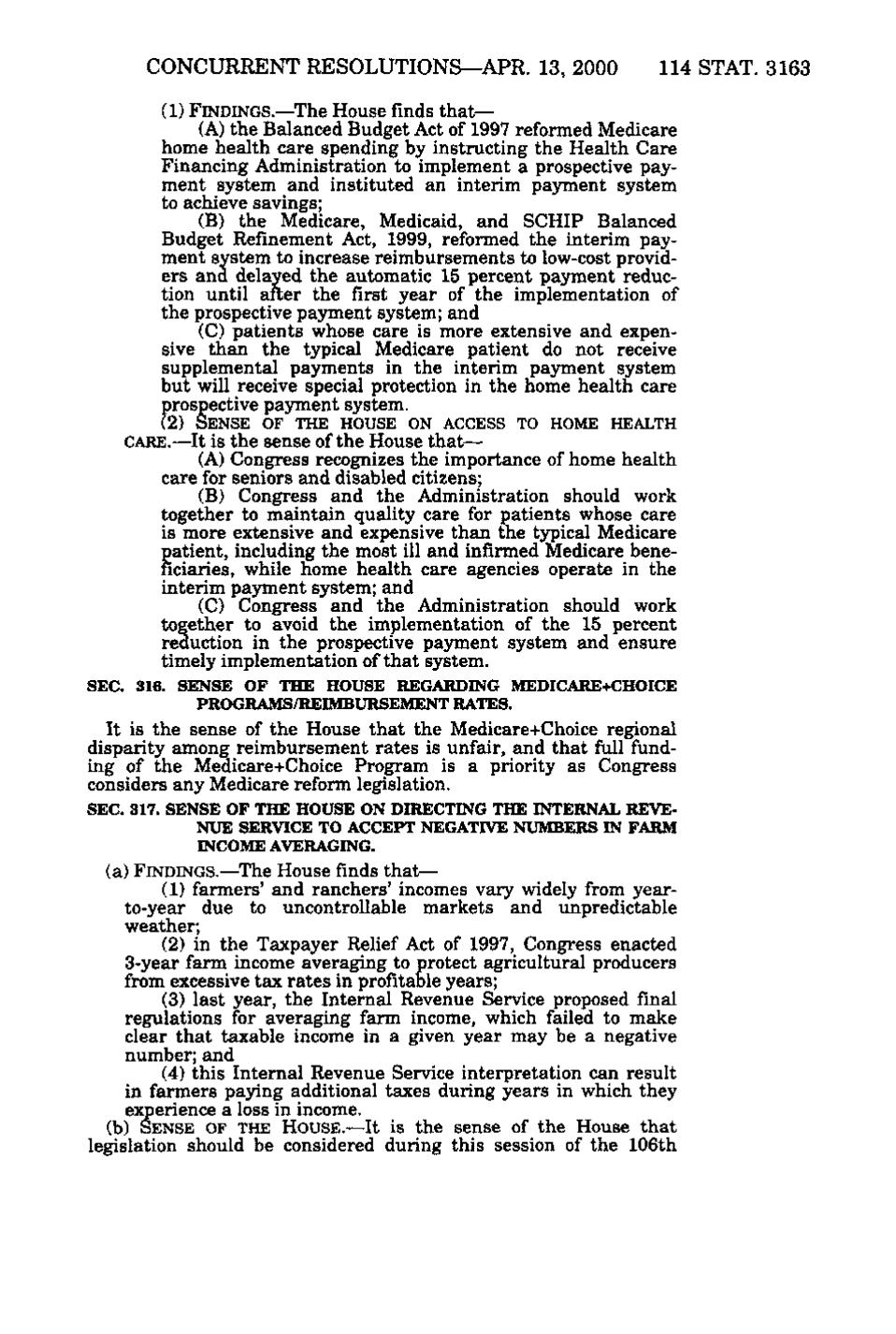CONCURRENT RESOLUTIONS—APR. 13, 2000 114 STAT. 3163 (1) FINDINGS. — The House finds that— (A) the Balanced Budget Act of 1997 reformed Medicare home health care spending by instructing the Health Care Financing Administration to implement a prospective pay- ment system and instituted an interim payment system to achieve savings; (B) the Medicare, Medicaid, and SCHIP Balanced Budget Refinement Act, 1999, reformed the interim pay- ment system to increase reimbursements to low-cost providers and delayed the automatic 15 percent payment reduction until after the first year of the implementation of the prospective payment system; and (C) patients whose care is more extensive and expensive than the typical Medicare patient do not receive supplemental payments in the interim payment system but will receive special protection in the home health care prospective payment system. (2) SENSE OF THE HOUSE ON ACCESS TO HOME HEALTH CARE.— It is the sense of the House that— (A) Congress recognizes the importance of home health care for seniors and disabled citizens; (B) Congress and the Administration should work together to maintain quality care for patients whose care is more extensive and expensive than the typical Medicare patient, including the most ill and infirmed Medicare beneficiaries, while home health care agencies operate in the interim payment system; and (C) Congress and the Administration should work together to avoid the implementation of the 15 percent reduction in the prospective payment system and ensure timely implementation of that system. SEC. 316. SENSE OF THE HOUSE REGARDING MEDICARE+CHOICE PROGRAMS/REIMBURSEMENT RATES. It is the sense of the House that the Medicare+Choice regional disparity among reimbursement rates is unfair, and that full funding of the Medicare+Choice Program is a priority as Congress considers any Medicare reform legislation. SEC. 317. SENSE OF THE HOUSE ON DIRECTING THE INTERNAL REVE- NUE SERVICE TO ACCEPT NEGATIVE NUMBERS IN FARM INCOME AVERAGING. (a) FINDINGS.— The House finds that— (1) farmers' and ranchers' incomes vary widely from yearto-year due to uncontrollable markets and unpredictable weather; (2) in the Taxpayer Relief Act of 1997, Congress enacted 3-year farm income averaging to protect agricultural producers from excessive tax rates in profitable years; (3) last year, the Internal Revenue Service proposed final regulations for averaging farm income, which failed to make clear that taxable income in a given year may be a negative number; and (4) this Internal Revenue Service interpretation can result in farmers paying additional taxes during years in which they experience a loss in income. (b) SENSE OF THE HOUSE. —It is the sense of the House that legislation should be considered during this session of the 106th
�
